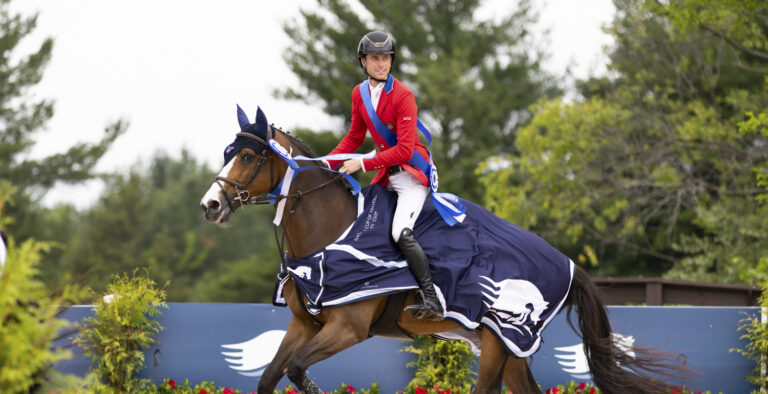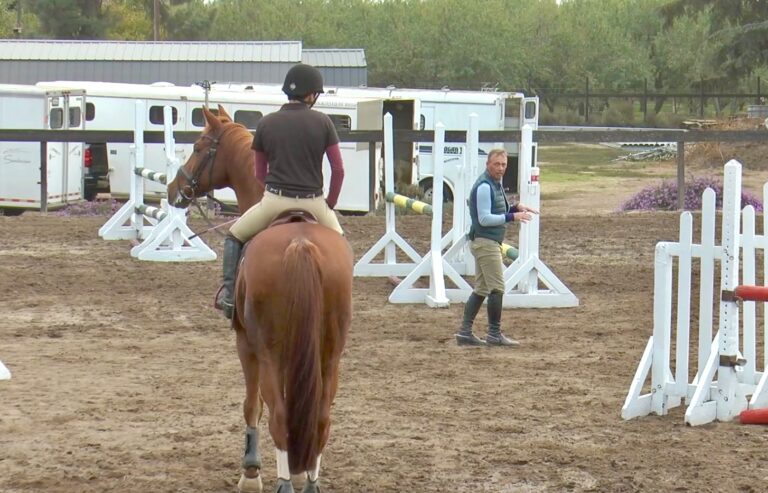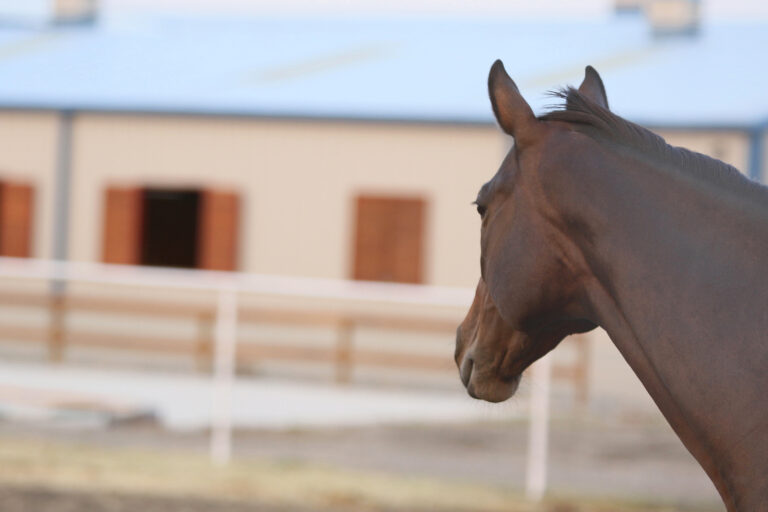Free fecal water syndrome (FFWS) involves a horse passing free water before, during or after normal manure. Unlike diarrhea, FFWS is not life-threatening, but it is a problem since horses’ bodies need to conserve water. When horses lose excess fluid in their manure, it can indicate a gastrointestinal (GI) issue with how their bodies resorb water.
Horses need to drink at least 8 gallons of water a day. On average, horses have approximately 19 gallons of water in their GI tracts, which moves continuously between the circulatory and GI systems. Water is secreted by salivary glands, the proximal GI (small intestine) and the initial part of the large colon (ventral colon), but it’s mainly absorbed in the distal hindgut (the dorsal large intestine and the small colon). About 4 gallons of water are absorbed by the large colon and an additional 1.5 gallons are absorbed by the small colon.
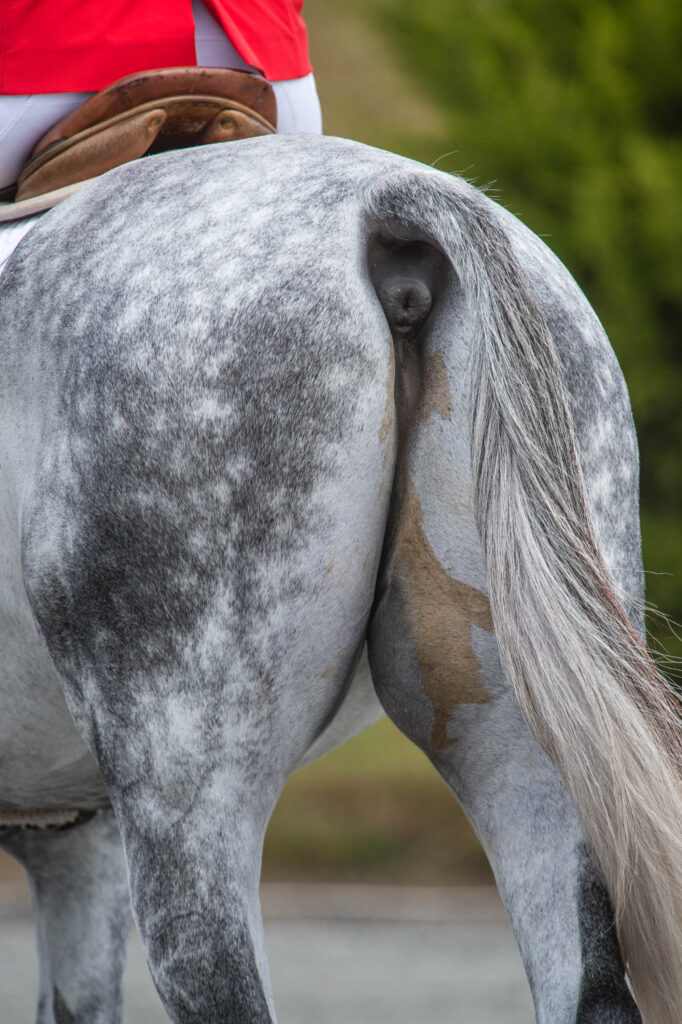
According to Clarke, Roberts and Argenzio’s influential 1990 study, the degree to which water is secreted and then absorbed is heavily dependent on a horse’s diet. Unlike horses whose diets are forage based, horses consuming a concentrate (grain-based) diet have tremendous fluxes of water into and out of the intestine due to intense periods of fermentation to digest the concentrate.
Water movement in the GI tract is supported by tight junctions, which are protein links that create a barrier using the colonic cells lining the walls of the hindgut, trapping water once it has been absorbed. When those tight junctions don’t function properly, typically because of inflammation, stress-induced changes or shifts in the microbiome, it can result in changes in gut permeability, which negatively affects a horse’s ability to absorb water.
Cause
The cause of FFWS is unclear, though a few possible causes include:
- stress,
- poor dental health,
- intestinal parasites,
- endocrine disease,
- leaky gut syndrome, or
- inflammatory bowel disease.
Signs
The main sign of FFWS is passing of normal manure along with watery fecal matter before, during or after defecation. Horses with FFWS often have manure stains on their hind legs and tails. Other than irritation when defecating the watery fecal matter, horses with FFWS typically show no other clinical signs.
Diagnosis
Your veterinarian can assess the clinical signs that your horse is exhibiting and determine if it’s FFWS or another medical condition. Though diarrhea and FFWS may seem similar, horses with diarrhea only have loose, watery feces with no solid fecal matter, while horses with FFWS have both watery and solid fecal matter.
Management
Managing horses with FFWS often involves a multipronged approach including fiber changes, supplements and stress management.
Work with your veterinarian to determine if adjusting your horse’s fiber intake could improve his GI health. Forages contain different types of fiber and moisture levels and can be used in various combinations to enhance GI function. Fiber also aids microbial fermentation in the hindgut, which supports the integrity of the intestinal wall. Additionally, prebiotics, probiotics and butyric acid can potentially ease the signs of FFWS. Dietary changes usually take at least four to six weeks to determine if there’s any improvement.
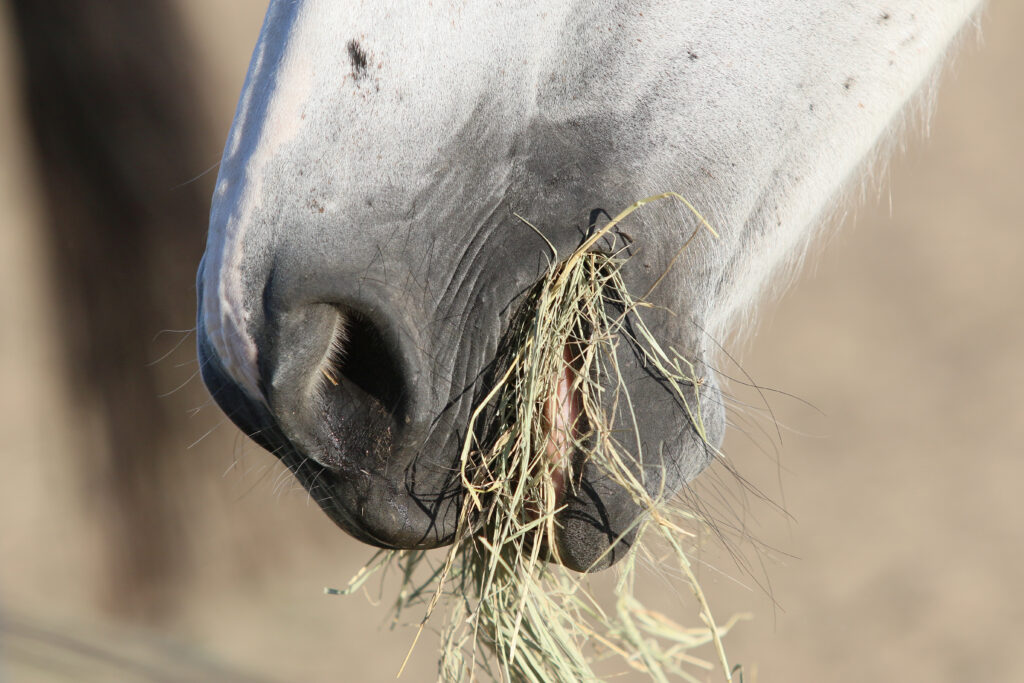
For horses with poor dental health, they may do better on all-pelleted complete feed, chopped hay, hay pellets or cubes rather than long-stemmed hay. Horses with endocrine diseases such as pituitary pars intermedia dysfunction (PPID) frequently have FFWS, but it often improves with PPID treatment using medications such as pergolide.
Minimizing stress is another aspect of managing FFWS. Horses can experience stress for any number of reasons, including intense training, transportation, stall rest, changing herd dynamics and other situations. The condition tends to be more common in the winter during harsh weather with freezing temperatures and reduced turnout time. Make the management changes you can to limit the stress your horse experiences.
While it doesn’t seem that intestinal parasites are the underlying cause in most horses with FFWS, consult your veterinarian to ensure parasites are not a contributing factor to your horse’s condition.
Prevention
Since the cause of FFWS is unknown, prevention is challenging. Practice good horse management, minimize stressful situations for your horse and work with your veterinarian to address any health concerns.
For More:
- Find out why quality forage is essential for your horse’s health and performance here.
- To learn more about how your horse digests fiber, click here.
About Anthony Blikslager, DVM, Ph.D., Dipl. ACVS

Practical Horseman thanks Anthony Blikslager, DVM, Ph.D., Dipl. ACVS, for his technical assistance in the preparation of this article. Blikslager is Professor of Equine Surgery and the Associate Dean & Director of Veterinary Medical Services at North Carolina State University’s College of Veterinary Medicine in Raleigh, North Carolina. His areas of expertise include biological barriers, gastroenterology, global health, large animal models, intestinal transport electrophysiology, and molecular techniques for probing epithelial reparative mechanisms.





